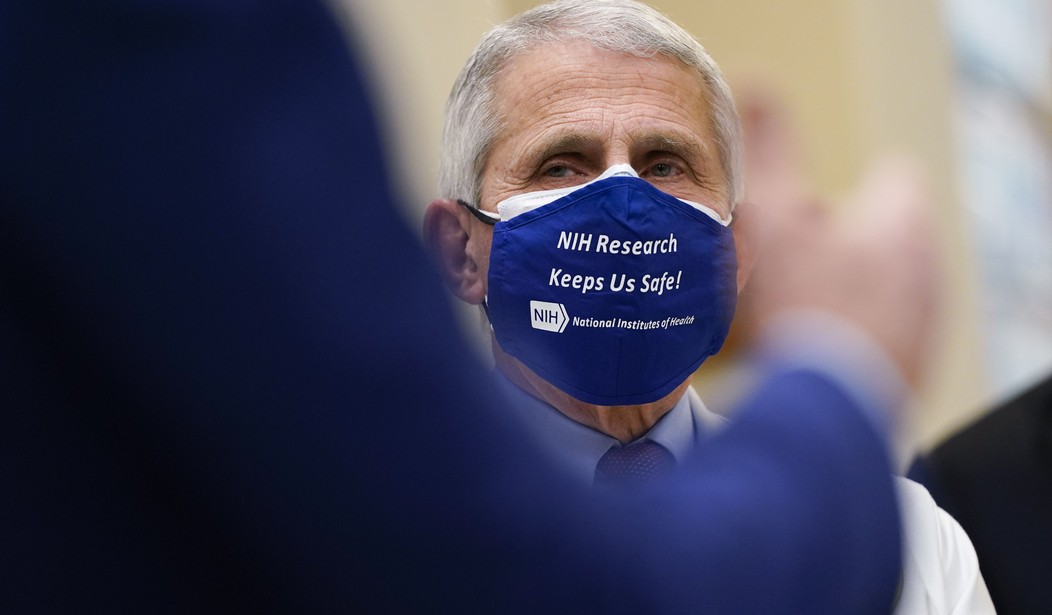The pandemic, at least in the United States, is beginning to subside with more than 60 percent of us vaccinated to one degree or another. Soon, pundits will begin to assess “what it all means” and the “lessons learned” during the crisis.
I’ll save them the trouble. What it means is that the public has lost faith in the public health system to keep them safe and the number one lesson learned is to never trust politicians who say they’re doing something “to keep us safe.”
When I was very young, polio was a big public health concern. The virus is spread mostly through contaminated water but there was a huge effort to “socially distance” youngsters as if the disease were airborne. There was also liberal use of the pesticide DDT, spraying it directly on children, as well as playgrounds and other places kids congregated.
Parents were terrified. The disease sickened about 50,000 kids at its height in the early 1950s, with one in two hundred cases developing serious symptoms, including paralysis.
The crisis was not in the rampant spread of polio but in the perception of the harm it could cause. Sound familiar? That perception was fed by public health officials. It wasn’t done out of malice or evil intent. It was done out of ignorance but with the best of intentions.
The COVID pandemic has exposed our public health officials as poor scientists and even worse politicians. And that spelled death and economic ruin for many.
Despite evidence of an outbreak in Wuhan, top US experts failed to help contain it. America’s Dr Anthony Fauci, opposed travel restrictions from China in early 2020, calling them ‘irrelevant’.
At that time, Fauci also opposed masks for the public. He wanted to save them for healthcare workers — yet he wasn’t forthright. Later he pushed for mask mandates. By early 2021, he suggested wearing two, calling it ‘common sense’.
He joined Democrats bashing Texas over the mask mandate repeal in early March, the so-called ‘Neanderthal mentality’. Yet in trying to explain why cases didn’t rise a month later, he told MSNBC ‘I’m not really quite sure’.
Science is the process of discovering facts and information. Politics is the art of persuasion. Unfortunately, Fauci thought he was correct in what he said in early 2020 about travel restrictions being “irrelevant.” The problem was he was proved wrong about six weeks later when the WHO declared a pandemic. But at the time he made that statement, that was the ongoing scientific consensus on the virus.
Fauci failed to realize the importance of his words as a public health official. That’s a political failure for which many people suffered. As time passed and researchers learned more and more about the coronavirus, Fauci kept making statements that were totally in line with the science at the time — at least, the consensus of opinion about the virus at that time. Some of the research that was originally dismissed ended up being adopted as a scientific fact, making Facui look silly.
For instance, we used to believe that the virus spread by touching plastic bags, or store counters. Surface transmission was disproven last fall but grocery stores still boast about their disinfecting efforts.
Was it unavoidable that public health officials would get so much so wrong, so often? Where should people go for a straight answer?
Some put their trust in celebrities, such as Joe Rogan, the UFC commentator and podcaster. Rogan questioned the need for young, healthy people to get a vaccine — that prompted quick pushback from Dr Fauci. People magazine profiled 137 public figures this month who announced their vaccinations, mostly pictured masked while getting the jab, from Dwayne ‘The Rock’ Johnson to Dolly Parton.
Others rely on Twitter, Facebook and Instagram. That leads to widespread conspiracy theories; what some call an ‘infodemic’ and ‘doomscrolling’. Social media giants devised algorithms linking COVID information warnings with COVID posts. But everyone can see that the big-tech approved authorities also have faulty track records.
Perhaps the best source for information is your family doctor. Unfortunately, the next pandemic will be much worse because people will not trust those who are supposed to know how to protect us.










